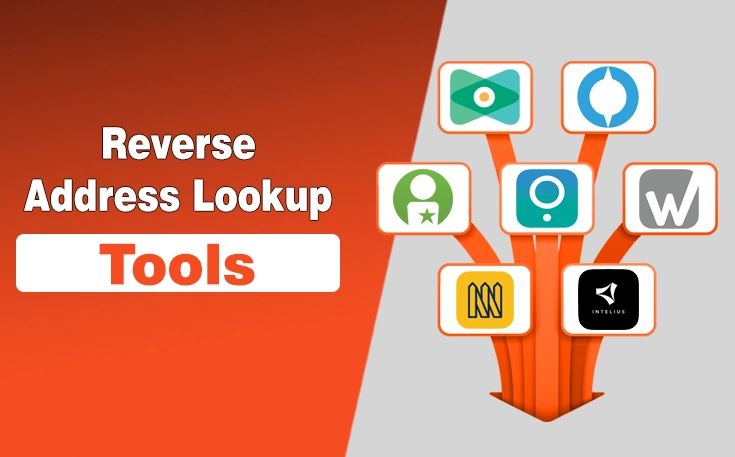In this tech-dependent world, the need for skilled computer and network technicians is higher than ever. And with a median pay of $61,550 per year, it can be a great career choice, especially if you’re looking for a career switch.
Unfortunately, there are a lot of myths and misconceptions regarding computer support training, stopping a large number of individuals from making the switch.
Let’s break down these common myths so that you can join the tech support world.
9 Common Myths About Computer Support Training

Myth 1: You Need to be a Tech Genius
This is one of the most widespread (unfortunately) myths that deters a lot of adults from becoming a computer support specialist.
The idea that you need to be a tech wizard has been around since pretty much the start of the technological revolution.
They just think that “if you weren’t born with a knack for technology, it isn’t for you”.
The Truth:
Much like other skills, you need to learn the skills required to become a computer support specialist.
This is why computer support training programs are designed to start with the basics. They assume you have little to no prior knowledge and help you build up your skills step by step.
Whether you’re a recent high school graduate, changing careers, or returning to the workforce, these programs are accessible to anyone with curiosity and determination.
Myth 2: You Need a Degree to Get Started
Many people assume that a lengthy and, not to mention expensive, college education is required to become a computer and network technician.
The Truth:
Having formal education certainly helps in this niche; however, it is not a requirement. This is because many employers value certifications, hands-on experience, and practical skills over formal education.
Once you’ve completed your training program, aim for industry-recognized certifications like CompTIA A+. These can quickly open doors to entry-level positions. Many learners also enhance their academic results by using dedicated practice tools that simulate real test scenarios. Platforms that support you learn how to maximize your score can make the certification process more approachable. By reinforcing key concepts through practice, you strengthen confidence and mastery before heading towards the exam.
| Pro Tip: Focus on staying up-to-date with the latest trends in the tech world; it is more appealing to employers than traditional degrees. |
Myth 3: Computer Support Is a Dead-End Job
Many people on online forums bash computer support roles, saying that they are low-level positions with little to no room for advancement.
Additionally, some people also claim that skills like problem-solving, customer service, and technical troubleshooting won’t get you much further in your career.
The Truth:
The reality of computer support and network technician roles is that it is often the gateway to a wide range of IT careers.
This means, after gaining adequate experience in this field (and learning new skills), one can easily climb the tech career ladder. In fact, many IT managers, network administrators, and cybersecurity specialists began their journeys as computer support technicians.
Myth 4: It Gets Mundane and Repetitive
There’s a stereotype (a persistent one) that computer support technicians spend their days answering the same boring questions and fixing the same problems, which can be resolved with a restart.
The Truth:
Well, this myth has been made popular in large part by movies and TV shows wrongfully portraying tech support.
As for the actual issues, yes, some are recurring; however, technology is evolving rapidly, and so are the issues faced by users.
You might be troubleshooting a network issue one day, helping someone recover lost data the next, or learning about the latest cybersecurity threats. The variety keeps the work interesting and ensures you’re always learning something new.
Myth 5: You Need to Be Young to Succeed in Tech
While this misconception isn’t specifically tied to tech support, many people believe in this strongly.
Adults, especially over the age of 30, worry that it’s “too late” to start a career in technology.
The Truth:
Yes, starting early helps, but that is true for pretty much every career.
Secondly, age isn’t (and never has been) a barrier to successful computer support training.
In fact, life experience can be a huge asset, especially when it comes to communication and problem-solving.
Myth 6: Online Computer Support Training Isn’t Effective
There is a large number of people who strongly believe that learning computer support online isn’t as effective as in-person training.
The Truth:
Online training programs were hardly effective in the past, but the current online computer support training programs, particularly post-COVID-19, are interactive, hands-on, and aimed at replicating real-world settings.
Most of them also feature virtual labs, simulations, and allow practicing troubleshooting scenarios.
Therefore, online training has the potential to be as efficient, and even more efficient than classroom-based learning because of the flexibility that many students need in learning at their own pace.
Myth 7: Computer Support Technicians Only Fix Hardware
The other myth that keeps individuals away from becoming part of a computer support program is the fact that computer support technicians merely repair and handle hardware problems.
The Truth:
Hardware troubleshooting is not the whole job, though it is a part of it.
Computer support technicians likewise deal with software problems, network connections, rudiments of cybersecurity, and user issues.
They assist companies to run their activities smoothly, protect information, and apply new technologies. This is a multidimensional position as you can imagine it needs technical skills as well as people skills.
Myth 8: This Field is Too Competitive
Considering that we are an extremely tech-reliant society, there are concerns that the IT employment sector is oversaturated and that securing employment as a computer support technician is next to impossible.
The Truth:
Although there is competition in any given field, the need of skilled computer support professionals is on the rise as technology gets more involved in running of businesses.
Industry reports show that the employment opportunities as a computer support specialist will grow by six percent in the next few years.
Myth 9: You Need To Be Good At Mathematics
Finally, the fear of mathematics. Many people shy away from computer support training because they believe strong math skills are a prerequisite.
The Truth:
While some areas of IT, such as programming or data science, may require advanced math, computer support training focuses primarily on logical thinking, troubleshooting, and communication.
This means mathematics is not required, and even if it is, the math involved is usually basic, such as understanding IP addresses or simple calculations.
Final Words
If you’re aiming to enroll in a computer support training program, then you must stop believing in the common myths. Moreover, the right time to start learning about computers and networks is now.
Also, don’t forget that the world of computer and network technicians is open to anyone willing to learn, regardless of background, age, or previous experience.
Need custom app with amazing features?
Get a Quote




